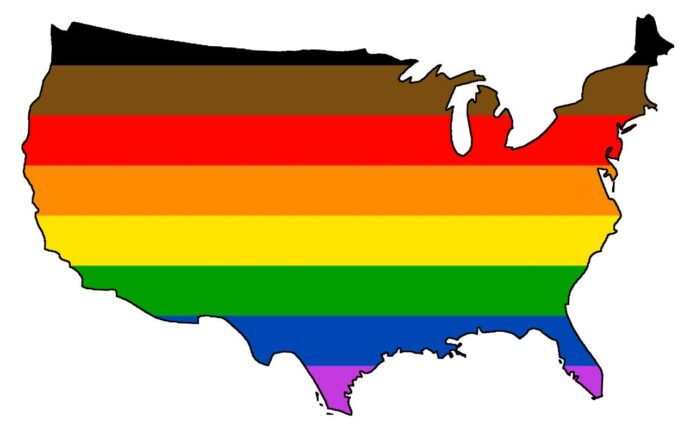We’ve heard this phrase a lot lately: The LGBTQ community is not a monolith. It gets used whenever the assumed homogeny of the community is called into question, serving as a reminder that not all LGBTQ share the same views or priorities.
In politics, for example, one might stereotypically expect LGBTQ people to automatically support an LGBTQ candidate. During the election in Pennsylvania last year, when notable LGBTQ people endorsed ally Austin Davis for Lieutenant Governor over openly gay Brian Sims, people said “the LGBTQ community is not a monolith,” to explain why Sims didn’t have unified LGBTQ support.
Socially, some LGBTQ people use the phrase to help justify them discriminating against other groups, including other members of their own community. Groups such as Gays Against Groomers state on their website: “The LGBTQ community is not a monolith,” to explain why they are against healthcare for trans minors and events like Drag Queen Story Hour.
But the phrase is much simpler than either of those examples. All it does is remind people of an obvious fact: LGBTQ people are individuals. They may belong to a community of others who share their sexual orientation or gender identity, but they do not live the exact same life as one another and they do not share all of the same views. The only thing that is true about everyone in the LGBTQ community is that they all identify as LGBTQ. And that identification is limited. It is not political. It’s not a race, class, or ethnicity. The acronym LGBTQ is not a Democrat or Republican. It’s not masculine or feminine. LGBTQ does not mean good or bad. It’s not indicative of how one lives their life.
The “monolith” that some may associate with the LGBTQ community is different for everyone based on the stereotypes they associate with us. To some, the monolith might be that all LGBTQ people are wealthy. That’s incorrect. The Center For American Progress has reported that LGBTQ people face higher rates of poverty, food insecurity, unemployment, and homelessness than non-LGBTQ people. A Human Rights Campaign study revealed that more LGBTQ people lost their jobs during the Covid-19 pandemic than non-LGBTQ people.
To others, the monolith might be that all LGBTQ people live in cities. That’s also incorrect. The Movement Advancement Project has estimated that three million LGBTQ people live in rural areas, and that “LGBT people who choose to live in rural communities often choose to live there for many of the same reasons that other people do: they value the same, wonderful aspects of rural life as other people, including vibrant and tight-knit community, family life, and connection to the land.” Despite the LGBTQ equality movement being born in New York City, not everyone enjoys such crowded streets and unique smells.
One monolith that I touched upon earlier is the political one. Many assume, incorrectly, that when a person says they are LGBTQ they are also saying they support liberal policies politically, economically, and socially. But the L in LGBTQ does not stand for Liberal. Not all LGBTQ people are Democrats and not all LGBTQ people support Democratic policies. A 2019 report from the Williams Institute showed that of the 9 million LGBTQ adults who are registered to vote, 15 percent (over 1.3 million) of them are Republicans.
Even among LGBTQ Democrats, there can be divisions. In Pennsylvania last year, many LGBTQ voters (including those not in big cities) chose John Fetterman over Malcolm Kenyatta for Senate despite the latter being openly gay. In Philadelphia this year we have a mayoral election with a dozen candidates, and while one or two may gain a large portion of the LGBTQ vote, it certainly will not be unanimous. How LGBTQ people vote, just as how LGBTQ people live, is linked but not wholly driven by their LGBTQ identity.
Aside from them being rich or urban or liberal, there are other, more dangerous monoliths being constructed to describe LGBTQ people. In many states across the country, legislatures and school boards are trying to remove LGBTQ books from libraries under the guise that any mention of LGBTQ identity is harmful to children. And perhaps the worst monolith of them all is that 67 countries still criminalize homosexuality, saying, essentially, that all gay people are inherently criminals.
Many members of the LGBTQ community have fought against the assumptions that others have thought of us, and they continue to do so today. But many other members of the community simply want to live their lives peacefully, away from any sort of political or social activism. One thing is clear for LGBTQ people in America, though, whether they’re an activist or not, conservative or liberal, or urban or rural. We have all benefitted from the advancements in LGBTQ equality gained over decades. Without them, there would be no LGBTQ monolith, because there would be no LGBTQ community.

